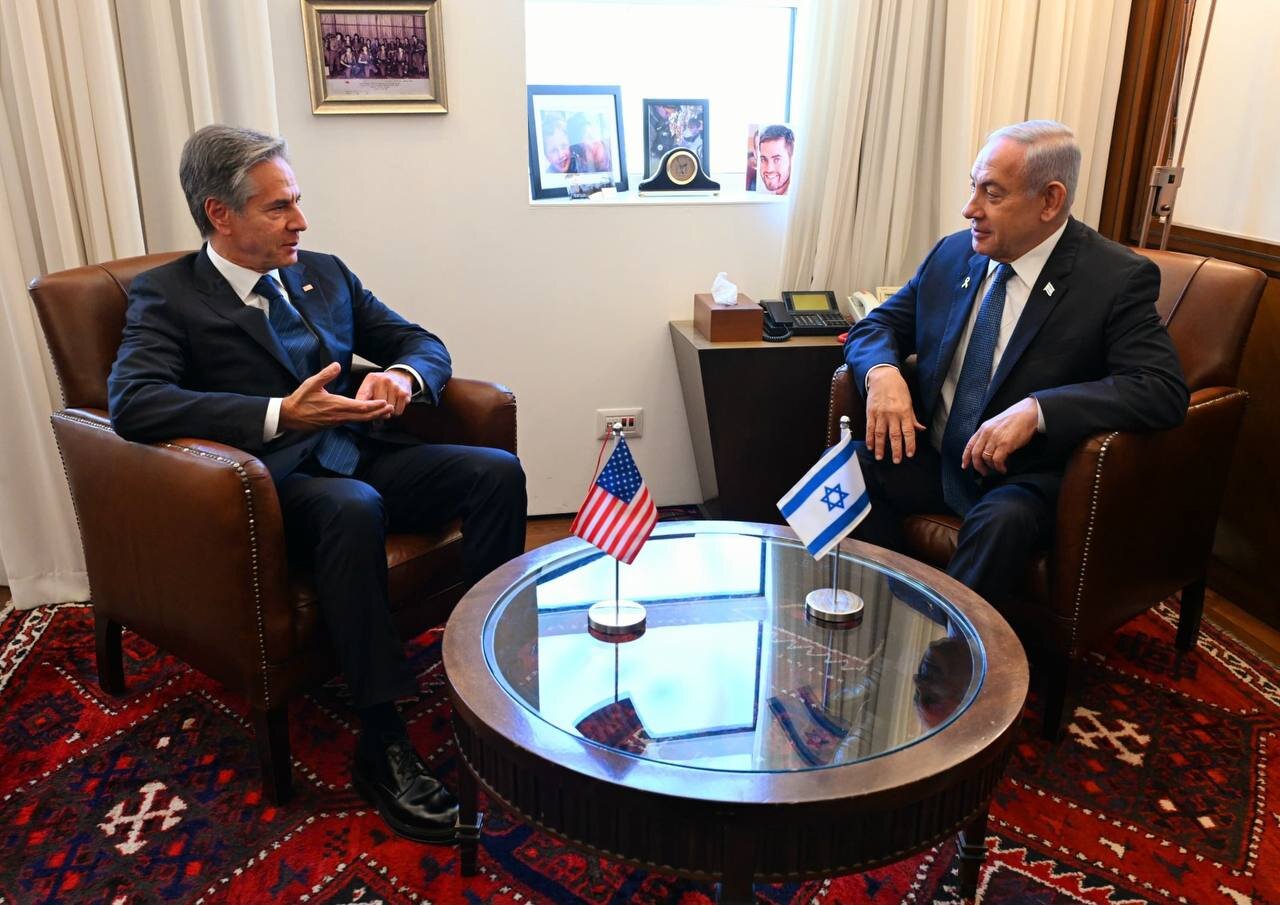Iran's lens shows two faces
Washington’s full involvement in Israeli aggressions means U.S. might have to share the consequences

TEHRAN – Israel’s wall-to-wall aggression has spawned a sense of impending doom in the region. Israel wants to use the opportunity created by the war in Gaza to cross every redline and put the Resistance on the back foot. After assassinating top Resistance leaders in the region, the regime is now flirting with the idea of dealing a direct blow to Tehran, and that could come with Israel’s alleged pending attack against the West Asian country.
Iran fired a volley of missiles at Israeli positions in the occupied territories on October 1, after the regime assassinated Hamas’ Ismail Haniyeh in Tehran in July, and Hezbollah’s Sayyad Hassan Nasrallah in southern Beirut last month. Analysts believe the assassinations were merely Israel’s opening act. The regime has carved a path toward the elimination of Resistance, and it will continue to move towards its desired destination with the aid of Washington.
Still, many observers thought a direct confrontation between Israel and its most powerful adversary, Iran, was a distant threat. But, in an unexpected turn of events, Iran drew a line in the sand in October, issuing a firm warning to Israel against further aggression against the Axis of Resistance. Now, the tables have turned. Israel faces a pivotal moment. It must choose: either dial back its regional aggression or prepare for a head-to-head fight with Iran itself.
Remarks from Iranian officials at least, show that Tehran believes these two are Israel’s only options. During his short stay in Bahrain on Tuesday – which came in continuation of a massive regional tour – Iranian Foreign Minister Abbas Araqchi said Iran is not looking for war, but it won’t hesitate to enter one if it has to. “Israel cannot be contained. There is no hope that the international community would manage to rein in the regime either,” the top diplomat told reporters after a meeting with Bahrain’s king.
Meanwhile, Iran’s top military brass has said either openly or anonymously that any aggression against Iran would be met with a response Israel probably has not foreseen. A source told the Tasnim News Agency in recent remarks that Tehran might be forced to reconsider its nuclear posture if its facilities are attacked. Another source told the media outlet that Iran will not care to stay proportionate in pursuing a response to any potential Israeli aggression. The message so far has been loud and clear: Iran is ready to fight, and Israel should brace for a storm unlike anything it has seen before if wants to go that way.
The latest developments, however, show that Iran’s string of warnings has sunk like a stone for Israel. Recently leaked documents revealed that the regime is preparing for an attack on Iranian soil and that it has already rehearsed its potential operation in mid-October. This may be disappointing to many observers but not surprising. Israel has committed various unprecedented crimes in the past year, attacking homes, schools, hospitals, and even UN positions and bringing the region to the brink of war multiple times. It is not unlikely that the regime would make yet another wild choice.
What Iran’s latest warnings indicate, however, is that Israel will not be the only entity to bear the consequences of the regime’s folly. This time around, any party that decides to give Israelis a hand in attacking Iran will also have to pay.
Regional states have already announced they will be skirting the dispute between Iran and Israel. According to Araqchi, all countries located between Iran and the occupied territories have assured him that their airspace won’t be used by Israel to harm Iran. The one party left in the crosshairs of the fire exchange between Tehran and Tel Aviv is the United States.
Washington’s year of going above and beyond for Israel
The U.S. has been a main patron of Israel since the regime was formed over seven decades ago. But the past year has shown that Washington is more than just an ally for the occupying entity. American politicians' support for Israelis since the beginning of the war in Gaza transcends the typical ally-ally dynamic.
“While the U.S.'s provision of weapons to Israel is certainly significant, I believe Washington's most crucial support has been on the political front. While the weapons fuel Israel's military actions, it's the unwavering political backing from the U.S. that truly empowers Israel to continue its campaign,” says Seyyed Razi Emadi, a West Asia analyst.
Washington has prompted widespread global criticism in the past year by vetoing any UN Security Council resolution asking for an end to the war in Gaza. “By doing so, the U.S. has practically rendered the United Nations ineffectual,” the expert notes.
On the battleground, beyond the dramatic increase in annual arms shipments to Israel, now exceeding $22 billion—a five-and-a-half-fold jump—the U.S. has taken its military support a step further. It has directly intervened on Israel's behalf by engaging Resistance forces in Syria, Iraq, and most notably Yemen.
When it comes to Israel’s face-off with Iran, it is already known that the U.S. will continue to help Israel in downing Iranian missiles screaming in the occupied territories just as it did during Tehran’s April and October attacks against Israel. To that end, the most advanced U.S. anti-missile system, THAAD, was deployed to occupied territories last week, with American soldiers accompanying the system to ensure its operation.
“I like to believe that Americans know better than to join Israel in its potential attack against Iran,” Emadi says. “But if they do take part in the attack, their bases in Iraq, Kuwait, Qatar, Saudi Arabia, Bahrain, the UAE, Jordan, and Oman will be legitimate targets for the Iranian military.”
Leave a Comment